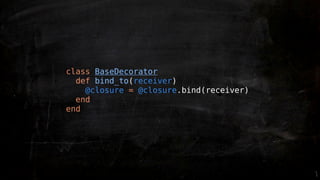Das Dokument erklärt Ruby Closures, die als Codeblöcke verwendet werden können, die Zugriff auf ihren ursprünglichen Kontext haben und an Methoden übergeben werden können. Es beschreibt die Unterschiede zwischen Procs und Lambdas, einschließlich der Arity-Prüfung und der Kontrollflussverhalten, und enthält Beispiele zur Verwendung von Closures in Ruby. Zudem werden einige Implementierungen von Lazy Collections und Methoden-Dekoratoren vorgestellt.
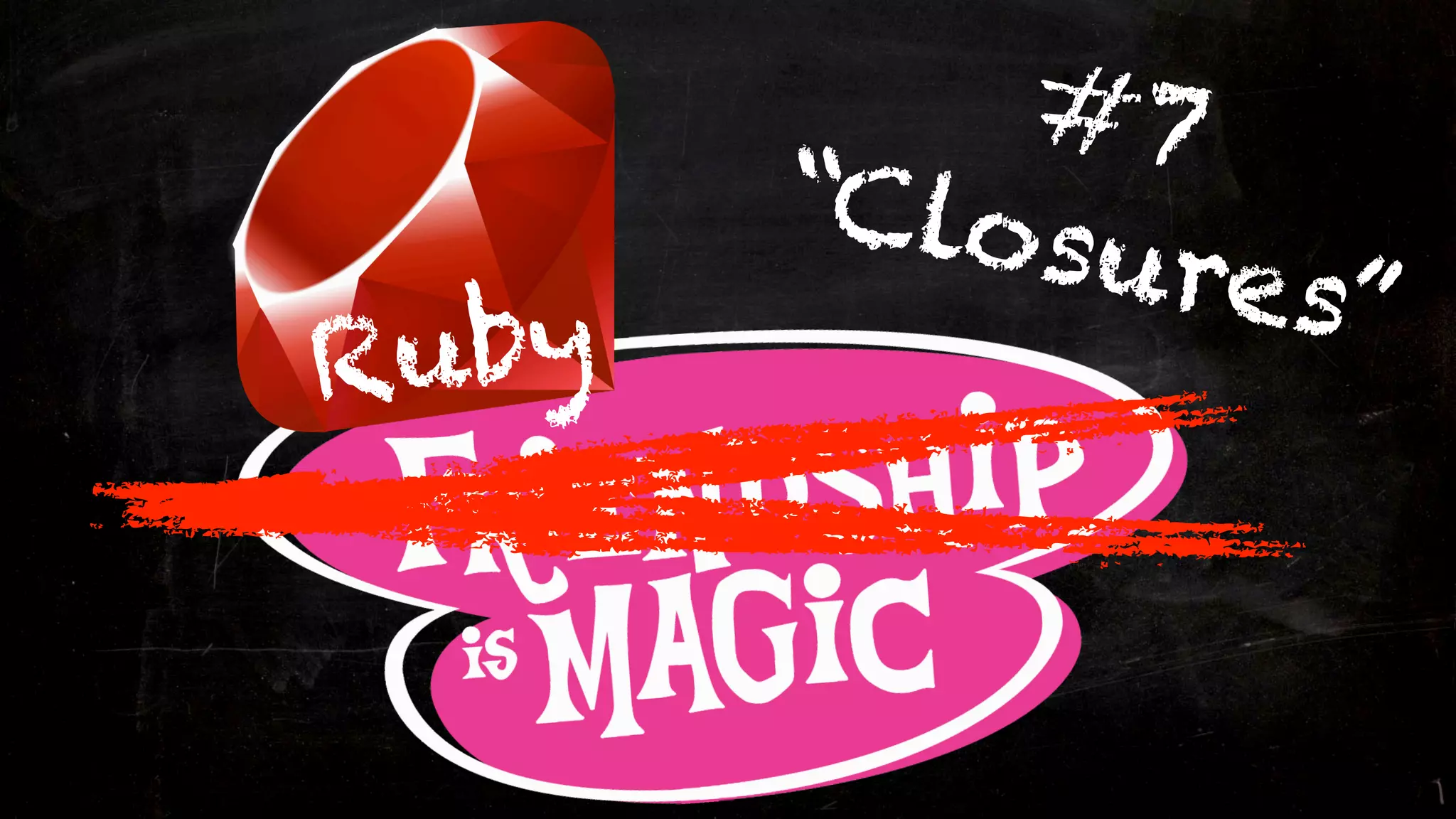
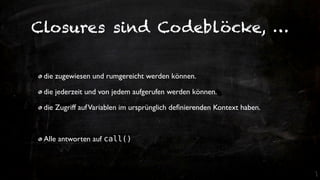

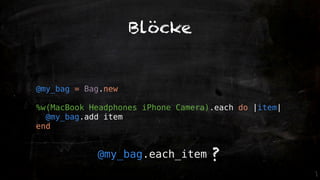
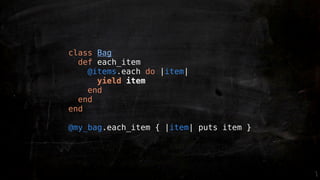
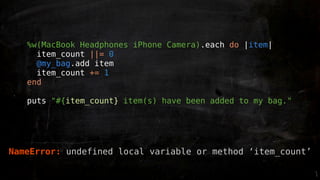
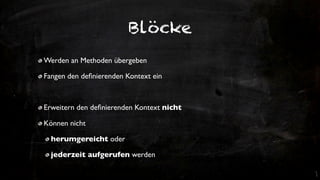
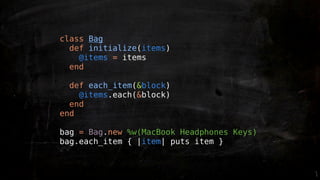
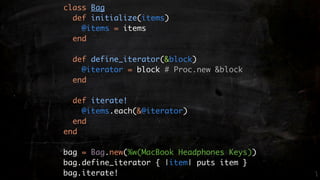
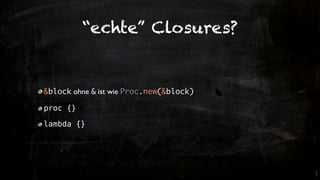

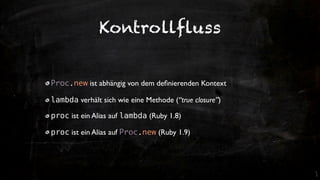
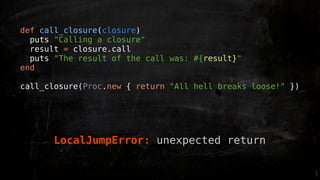
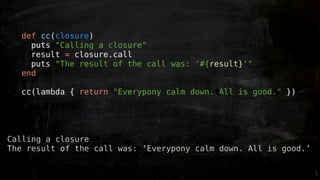
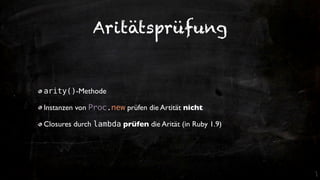
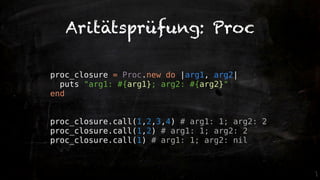
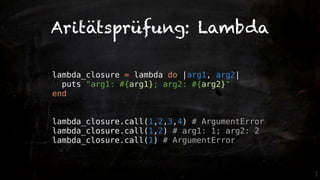
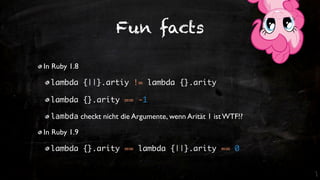

![class BlogEntry
class LazyLoadCollection
include Enumerable
def initialize(lazy_collection, after_load_callback = nil)
@lazy_collection = lazy_collection
@after_load_callback = after_load_callback.present? ? after_load_callback : lambda { |args| return args }
@collection = @after_load_callback.call(@lazy_collection.call)
end
def each(&block)
@collection.each(&block)
end
end
class <<self
def find_all(language)
lazy_feed = lambda { Nokogiri::XML(open(Rails.config.blog_feed_url)) }
create_blog_entries = lambda do |feed|
feed.xpath("//item").collect { |item| BlogEntry.new(xml_item) }
end
LazyLoadCollection.new lazy_feed, create_blog_entries
end
end
def initialize(xml)
self.attributes = (item.xpath("*/text()").inject({}) do |attributes, text|
attributes[attribute_name] = text.content if text.parent.name.present?
attributes
end)
end
end](https://image.slidesharecdn.com/colognerb-closures-120121083720-phpapp02/85/Ruby-is-Magic-Episode-7-Closures-20-320.jpg)
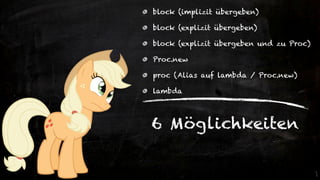


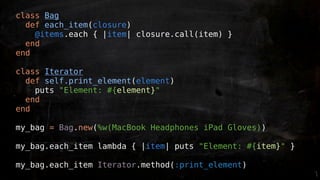
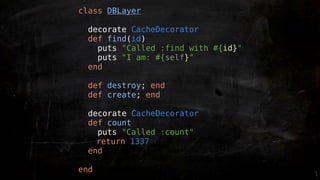
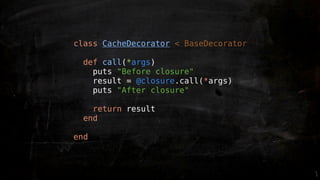

![module FunctionDecorators
def self.apply_decorator(decorator, method_name, target)
decorated_method = target.instance_method(method_name)
target.send(:remove_method, method_name)
target.__decorators[method_name] = decorator.new(decorated_method)
params = decorated_method.parameters.collect(&:last).join(',')
class_eval <<-RUBY
def #{method_name}(#{params})
self.class.__decorators[:#{method_name}].bind_to(self)
self.class.__decorators[:#{method_name}].call(#{params})
end
RUBY
end
end](https://image.slidesharecdn.com/colognerb-closures-120121083720-phpapp02/85/Ruby-is-Magic-Episode-7-Closures-28-320.jpg)
